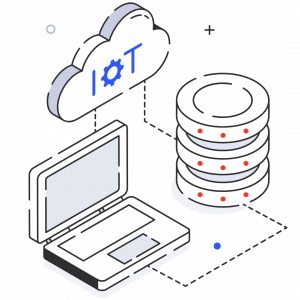Incorporating IoT in Business Operations
The Internet of Things (IoT) refers to the interconnected network of devices embedded with sensors, software, and other technologies to exchange data over the internet. When applied to business operations, IoT enables real-time monitoring, automation, and optimization of processes, leading to increased operational efficiency and reduced costs.

Implementing IoT in business environments offers several distinct advantages:
To better illustrate the potential of IoT, let’s explore some practical applications across different business functions:
Supply Chain and Inventory Management
IoT has the potential to transform supply chain operations by providing end-to-end visibility and control. Smart sensors and RFID tags can track the movement of goods in real-time, ensuring accurate inventory levels and reducing the risk of stockouts. Warehouse management systems can leverage IoT data to optimize storage and retrieval processes, enhancing overall efficiency.
Customer Experience Enhancement
By integrating IoT into customer-facing operations, businesses can create personalized and seamless experiences. For instance, IoT-powered smart shelves in retail stores can identify products with low stock and notify staff for restocking. Additionally, connected devices can collect customer preferences and behavior data, enabling businesses to tailor their offerings and marketing strategies.
Facility Management
IoT-enabled facility management solutions allow businesses to monitor and control various aspects of their physical infrastructure. Smart sensors can detect temperature, humidity, and occupancy levels, ensuring optimal conditions for both employees and equipment. Automated systems can adjust lighting, HVAC, and other utilities based on real-time data, resulting in cost savings and improved comfort.
Remote Monitoring and Control
For businesses with remote or distributed operations, IoT provides the capability to monitor and control assets from anywhere. Energy companies can use IoT to monitor pipelines and equipment in real-time, ensuring operational integrity. Similarly, agriculture businesses can leverage IoT to monitor soil conditions, irrigation systems, and crop health remotely, optimizing yields and resource usage.
Healthcare and Patient Care
In the healthcare sector, IoT is revolutionizing patient care and medical operations. Wearable devices can monitor vital signs and transmit data to healthcare providers in real-time, enabling proactive interventions and personalized treatment plans. Smart medical equipment can track usage patterns and schedule maintenance, ensuring continuous availability and reliability.
While the benefits of IoT are significant, businesses must be aware of potential challenges and considerations when implementing IoT solutions:
Incorporating IoT into business operations is no longer a luxury but a necessity for businesses aiming to thrive in a competitive landscape. The ability to connect and analyze data from various sources empowers businesses to make informed decisions, improve efficiency, and deliver exceptional customer experiences. By understanding the potential of IoT and following a structured implementation approach, small business owners can unlock new opportunities for growth and success.
